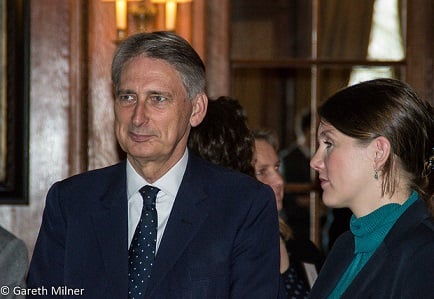

A National Insurance rise for the self-employed, which could have hit insurance brokers with their own businesses across the country, has been dropped in a remarkable U-turn from Chancellor Philip Hammond.
Earlier today, the Chancellor issued a letter to Conservative MPs outlining that he had decided to drop the changes “in light of the debate” despite his belief that the changes could have made the tax system fairer. The main rate of class four national insurance contributions was due to jump to 10% in April 2018 and 11% in April 2019, adding around 60p a week to those affected.
The reversal has been welcomed by other parties but also described as “humiliating” for the Chancellor.
“This is a humiliating reversal for the chancellor forced upon him by Labour’s opposition,” said shadow chancellor John McDonnell. “His authority is now shredded after just one Budget, and he tore up a manifesto commitment to do it.”
“This spectacular U-turn from a government in chaos is hugely welcome,” added Green Party leader Caroline Lucas. “If they are serious about creating a fair economy then the government will now reverse other damaging policies like their deep cuts to local government and tax cuts for the richest.”
Here is the Chancellor’s letter to Conservative MPs in full:
Dear Colleague
I am writing to clarify the Government’s position with regard to the changes to National Insurance contributions (NICs) for the self-employed, announced in last week’s Budget.
As I set out last Wednesday, the gap between benefits available to the self-employed and those in employment has closed significantly over the last few years - most notably by the introduction of the new State Pension in April 2016, worth an additional £1,800 to a self-employed person for each year of retirement.
It remains our judgment that the current differences in benefit entitlement no longer justify the scale of difference in the level of total NICs paid in respect of employees and the self-employed.
Colleagues will be aware that there has been a sharp increase in self-employment over the last few years. Most commentators believe that at least part of the increase is driven by differences in tax treatment.
HMRC estimates that the cost to the public finances of this trend is around £5bn this year alone and the parallel increase in incorporation will cost more than £6bn a year by the end of the Parliament. This represents a significant risk to the tax base and thus to the funding of our public services.
The measures I announced in the Budget sought to reflect more fairly the differences in entitlement in the contributions made by the self-employed and addresses the challenge of sustainability of the tax base.
The Government continues to believe that this is the right approach.
Want the latest insurance industry news first? Sign up for our completely free newsletter service now.
Since the Budget, however, there has been much comment on the question of commitments made in our 2015 manifesto. Ahead of Autumn Statement last year, the
Prime Minister and I decided that, however difficult the fiscal challenges we face, the tax-lock and spending ring-fence commitments we have made for this Parliament should be honoured in full. I made this clear in the Autumn Statement speech.
As far as National Insurance contributions are concerned, the locks were legislated for in the National Insurance contributions (Rate Ceilings) Act 2015.
When that Bill was introduced, it was made clear that the lock would apply only to Class 1 contributions (employer and employee). The measures proposed in the Budget fall within the constraints set out by the tax-lock legislation and the spending ring-fences.
However, in light-of the debate over the last few days it is clear that compliance with the "legislative" test of the Manifesto commitment is not adequate.
It is very important both to me and to the Prime Minister that we are compliant not just with the letter, but also the spirit, of the commitments that were made.
In light of what has emerged as a clear view among colleagues and a significant section of the public, I have decided not to proceed with the Class 4 NIC measures set out in the Budget.
There will be no increases in NICs rates in this Parliament. We will continue with the abolition of Class 2 NICs from April 2018. The cost of the changes I am announcing today will be funded by measures to be announced in the Autumn Budget.
I undertook in the Budget speech to consult over the summer on options to address the principal outstanding difference in benefit entitlement between employed and self-employed: parental benefits. We now intend to widen this exercise to look at the other areas of difference in treatment, alongside the Government’s consideration of the forthcoming report by Matthew Taylor, CEO of the RSA, on the implication of different ways of working for employment rights.
Once we have completed these pieces of work, the Government will set out how it intends to take forward, and fund, reforms in this area.
I plan to make a statement in the House later today.
Philip Hammond
What is your reaction to today’s revelation? Is Hammond right to reverse his decision or does it undermine his position? Leave a comment below with your thoughts.
Related stories:
Budget 2017: Summary of key points at a glance
